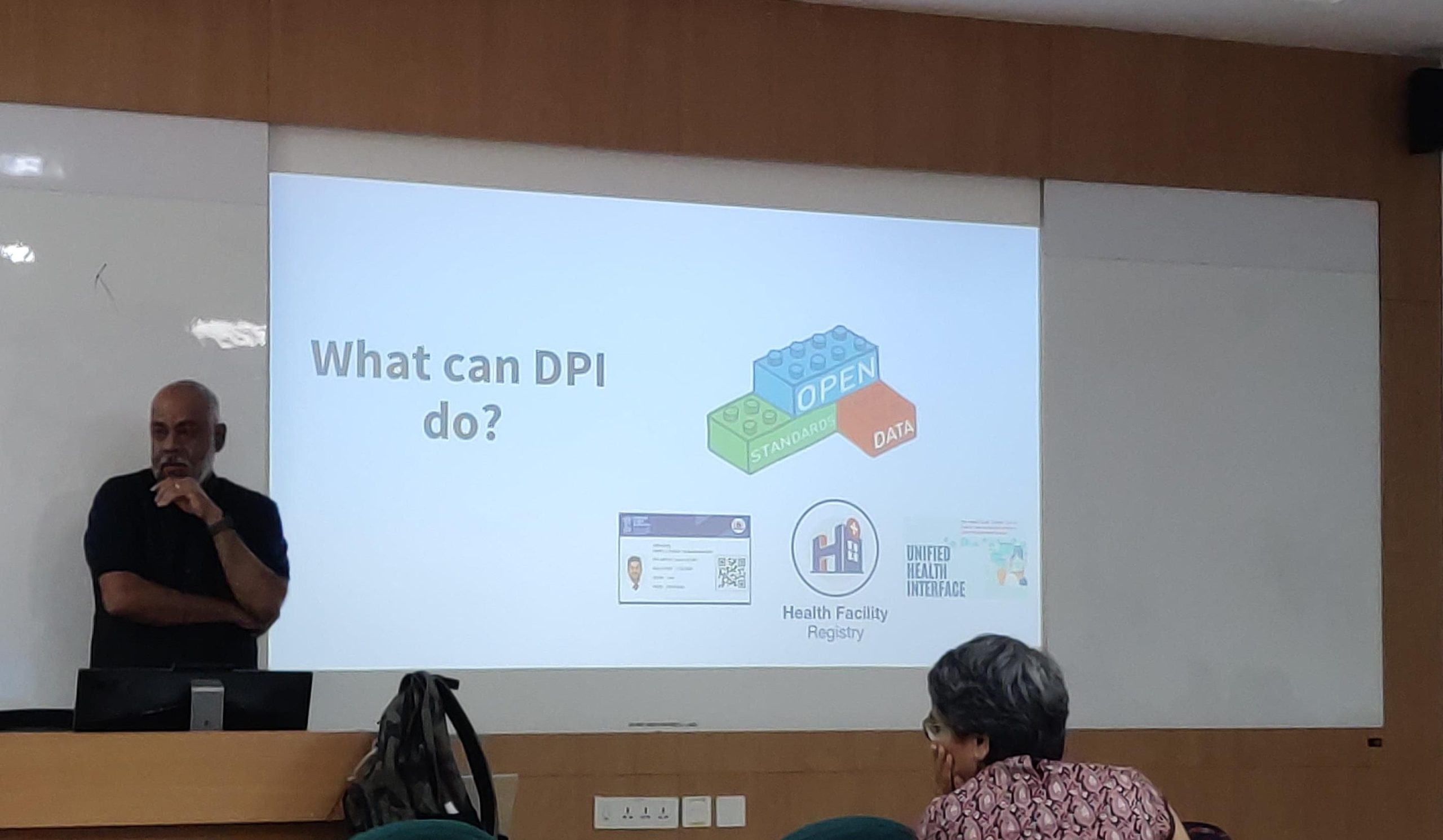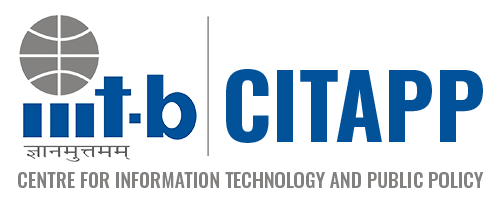 Date: 20/03/2024
Date: 20/03/2024
About the Talk:
The talk covered Rahul’s experience of having implemented digital tools in public health over the past decade and what he has learnt in the process. From seeing systems scale to unprecedented levels, to being shut down overnight, to exploring the depths of donor led digital fragmentation across the public health landscape in Africa and Asia, Rahul will talk about what really works for the users and beneficiaries – those who matter most. Do healthcare workers come to work to take care of patients or to fill endless data into registers and/or tablets/phones? Do patients really care what digital system is in use?. Doesn’t usability trump everything – the “best” designed tools, using best of standards, protocols, common health ID, supposedly interoperable, scalable and with great data visualization – won’t matter if the healthcare provider doesn’t want to use it and the patient does not benefit from its use. The foundations of a strong digital public infrastructure only matter if the digital public goods built on it work for the people who matter.
Rahul shared his perspective based on his experience working in India, Asia and Africa, building digital public goods and his singular focus on keeping the health outcome as the north star for digital development.
Speaker Bio:
Rahul Mullick is the Senior Vice President – Digital at Resolve to Save Lives where he focusses on using digital technology as an enabler to save lives from epidemics and cardiovascular diseases. He has worked extensively in Digital Health space, supporting implementation of some of the largest Digital health platforms in maternal & child health, nutrition and infectious diseases. Prior to Resolve, Rahul was a Deputy Director at the Bill and Melinda Gates Foundation for over 7 years and led important Digital health platform rollout to scale in India. He has worked extensively with the Government, development sector, NGOs and private sector to help use technology better for creating impact and improving lives of citizens. Rahul’s present focus is extensively on Africa and Asia, helping strengthen public health systems for improving pandemic preparedness, saving lives from cardiovascular diseases and using digital to enable better primary health care and patient outcomes.
Prior to his foray in the development sector, Rahul spent 17 years in the Consulting working with leading professional services firms like PwC, KPMG & EY. In his last consulting role, he was a Partner at PriceWaterhouseCoopers (PwC), co-leading the eGovernance practice, working towards implementing
technology solutions for better government to citizen service delivery across various domains including Health, Urban/Rural Development, Food Distribution, Emigration, Police Modernization and Education. Rahul also serves as an advisor to organizations to want to build tech for good but with user and usability in mind and necessarily with the health outcome lens. He is based in Gurgaon but is often on the road as he prefers to be in the field where the real work happens.
The talk was followed by a discussion and Q&A
CITAPP’s Monthly Seminar Series is an attempt to create a forum where researchers across IIITB domains can meet and discuss cutting-edge research on the chosen theme of the semester. The Series hopes to explore a technology or topic for its ramifications in different realms of social activity. In particular, we are interested in understanding the specific kinds of complexity that these domains present for technological innovation and design.

